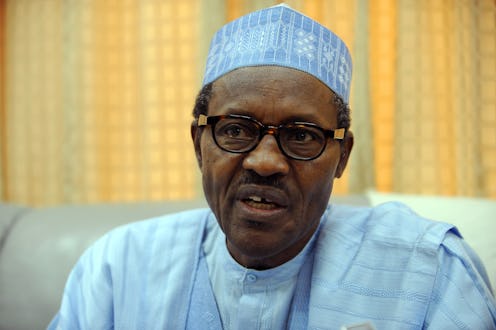News
Nigeria Has A New President-Elect
With the polls closed in Nigeria's 2015 presidential election, and a nearly three million vote advantage for the challenger, it looks like there's a new top dog in town — Nigeria's election has ousted President Goodluck Jonathan in favor of former military leader Muhammadu Buhari, the same man Jonathan defeated to retain his presidency back in 2011.
It's an upset of a kind, obviously, as the incumbency is always a powerful force in politics wherever you go. But viewed in context, it's not exactly surprising that many Nigerians have grown weary of Jonathan and his leadership. Amid clashes and brutal violence carried out by Islamic terrorist organization Boko Haram, there have been many indications that the public lost faith in the government's ability to provide protection, and that's pretty understandable.
For some perspective, earlier this year Boko Haram laid waste to entire towns (Baga and Doron Baga, as detailed by the BBC), with reports that a staggering 2,000 people were killed. The Nigerian government disputed this figure, insisting it was only 150 left dead, an apparent downplaying of the destruction that seemingly didn't win Jonathan much admiration. Whether Buhari will fare much better remains to be seen, but there's no dispute that he'll get his chance — Jonathan has reportedly conceded the election.
While the national crisis posed by violent extremists like Boko Haram (to say nothing of ISIS, which Boko Haram pledged allegiance to earlier this month) has understandably been the headline-grabber lately, that's not the only area where Jonathan's government has looked highly problematic to outsiders. Back in January, he signed a strident anti-homosexuality bill into law, criminalizing his own LGBT community. These kinds of laws are depressingly common throughout parts of Africa — you may remember a particularly infamous example from Uganda which was ruled unconstitutional late last year, though anti-gay lawmakers are still trying to push another one through.
Of course, it's profoundly unclear at this stage what Buhari's election will change, if anything. In the run-up to the election, Jonathan's People's Democratic Party alleged that Buhari was cutting deals with European governments to repeal the anti-gay law if he won, though that could just as easily be politicized homophobia and fear-mongering as anything else.
On the Boko Haram front, the 72-year-old campaigned on securing victory over the militant group, and were such a thing possible it'd be a huge relief — as detailed by The New York Times, a U.N. official informed the Security Council on Monday that 7,300 people have been killed in northern Nigeria since the start of 2014.
Image: Getty Images
